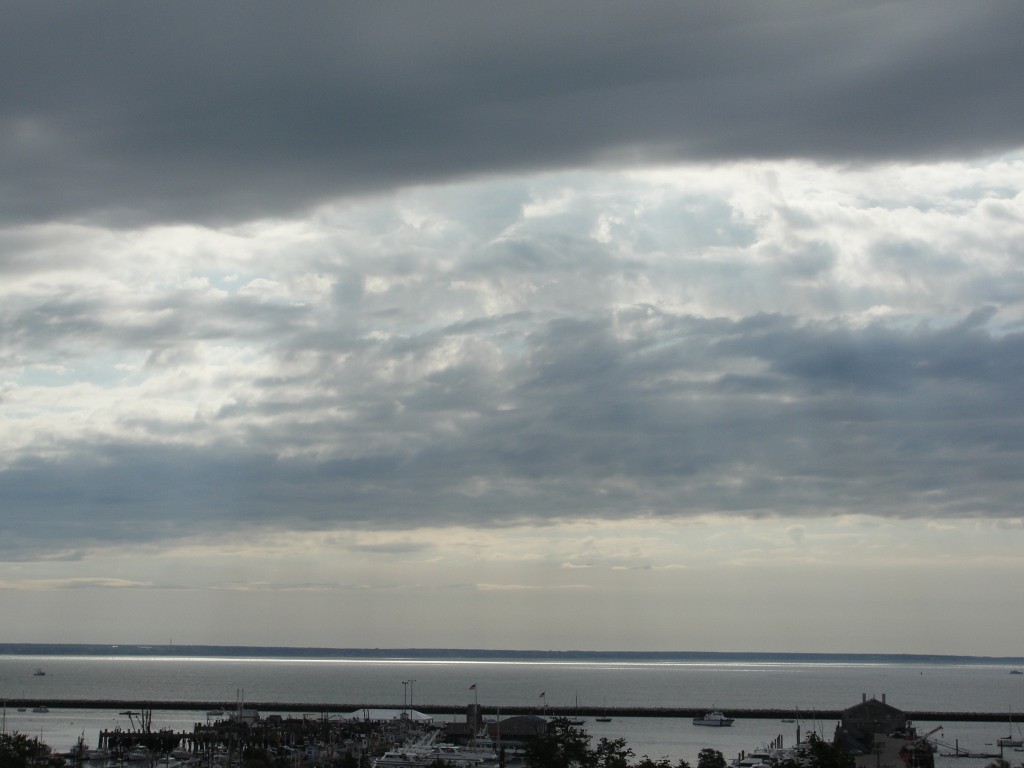As one year closes another begins. One door closes and another door opens. As the grass lays down to die in the fields new seeds prepare to grow in the spring. As sad as endings are, beginnings are always exciting, always full of promise and dreams.
 Here is my New Year’s column from the Cape Codder…
Here is my New Year’s column from the Cape Codder…
As one year closes another prepares to open. If you’re out in nature a lot you know this is purely a calendar thing contrived by humans but nature also has a calendar that she follows. It is no coincidence that we associate the beginning of a new year with some of the darkest, coldest days of the year. While we gather around warm fireplaces wearing cozy slippers and sweaters much of nature is also quieting down and resting in the warmest, coziest places to be found. It is during these quiet times that we rest and renew ourselves and we are not alone in that.
Winter on the Cape can be both harsh and mild, sometimes on alternating days as was the case this past week, freezing one day and downright balmy the next. These kinds of days can be confusing to animals and plants. We can add a coat or subtract a coat but an earthworm heading up and out through the dirt, as some did last week, could be in for a rude surprise when the earth freezes quickly again. Buds may begin to bloom out of season and animals may rise out of their partial torpor to forage in the mild weather. Most, however, will remain at rest or operate on a lower level of energy at this time of year.
For most animals and plants, our northeastern winters are a time of renewal and rejuvenation. It is through periods of dormancy and darkness that much of nature slows down and resets its own clock. In times of rest there is renewal all the way down to the cellular and molecular level. Without these times of rest energy sources may be tapped out and populations could suffer as a result.
Winter nights are longer and darker than summer nights and in many ways are challenging in terms of survival. Birds and animals have less time during the day to gather food and rebuild their energy reserves. Storms, extreme cold and lack of shelter can also take their toll. Those who survive these tough conditions are often the strongest but also, perhaps, the canniest.
Have you noticed that flocks of house sparrows often find shelter under cars in parking lots on really cold winter days? They are no fools. The residual warmth from cooling engines is a welcome relief and respite for these cagey little survivors. Crumbs and trash falling from cars means easy access to food which may not always be the most nutritious but which will keep them going with minimal energy expenditure as well. There’s a reason so many of these opportunistic birds survive and thrive.
Most of our plants are also in a state of rest that will lead to renewal and this is an important part of their cycle as well. If one came from a part of the world where there are always leaves on trees one might think our winter trees are dead. They are not, however. They are just dormant but very much alive under their quiet, gray demeanor. This may be the time of year when plant cells are not just frantically growing, growing, growing but they can actually absorb nutrients and energy and find new strength. They will face the spring with renewed vigor and urgency but for now they are at rest.
Living in a seasonal area that is overwhelmingly busy for part of the year most of us can relate to this cycle of rest and renewal. Our mothers and grandmothers were right. We all need our rest in order to feel renewed. In that spirit, Happy New Year to all and to all a good long winter’s nap!
